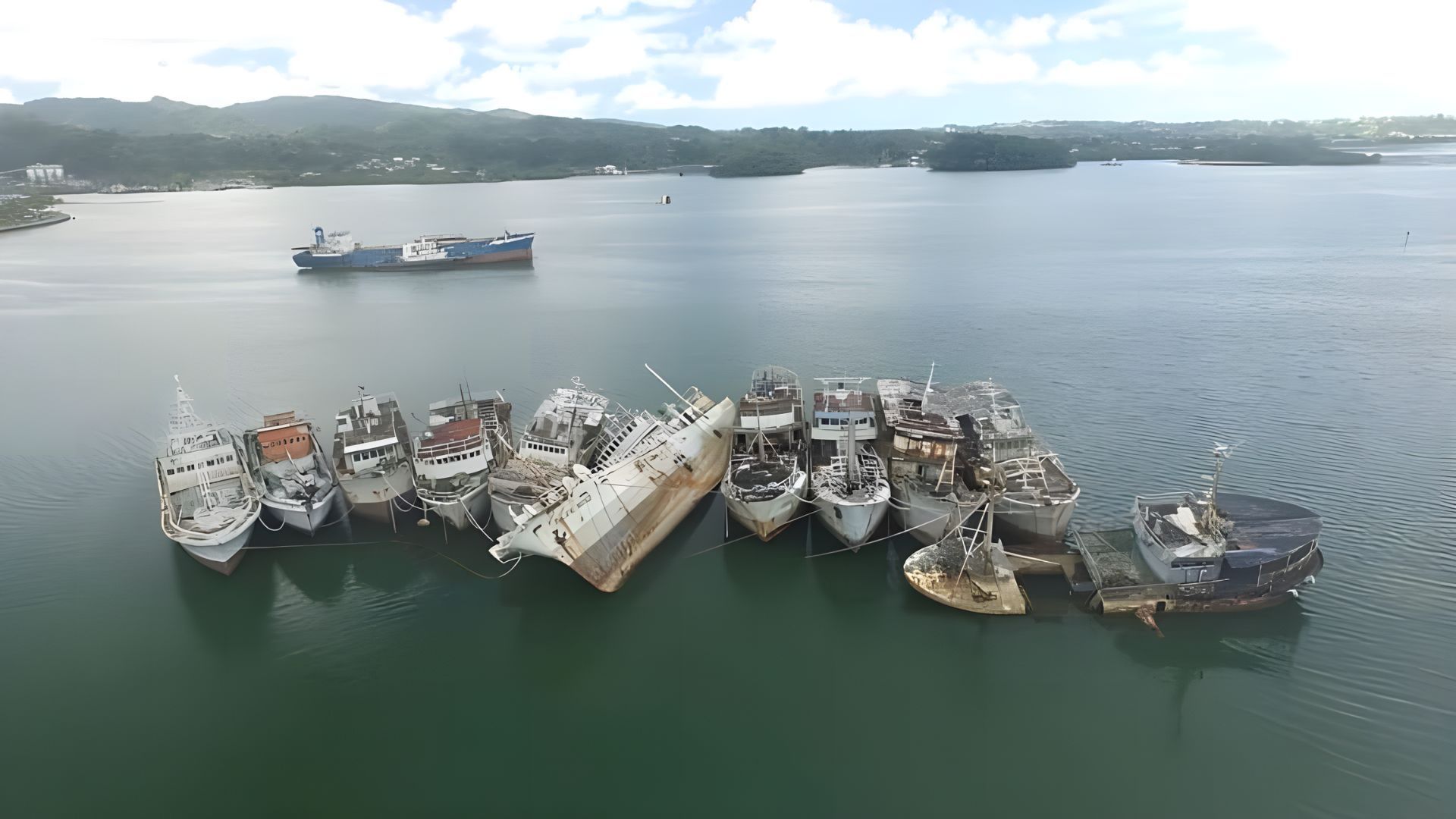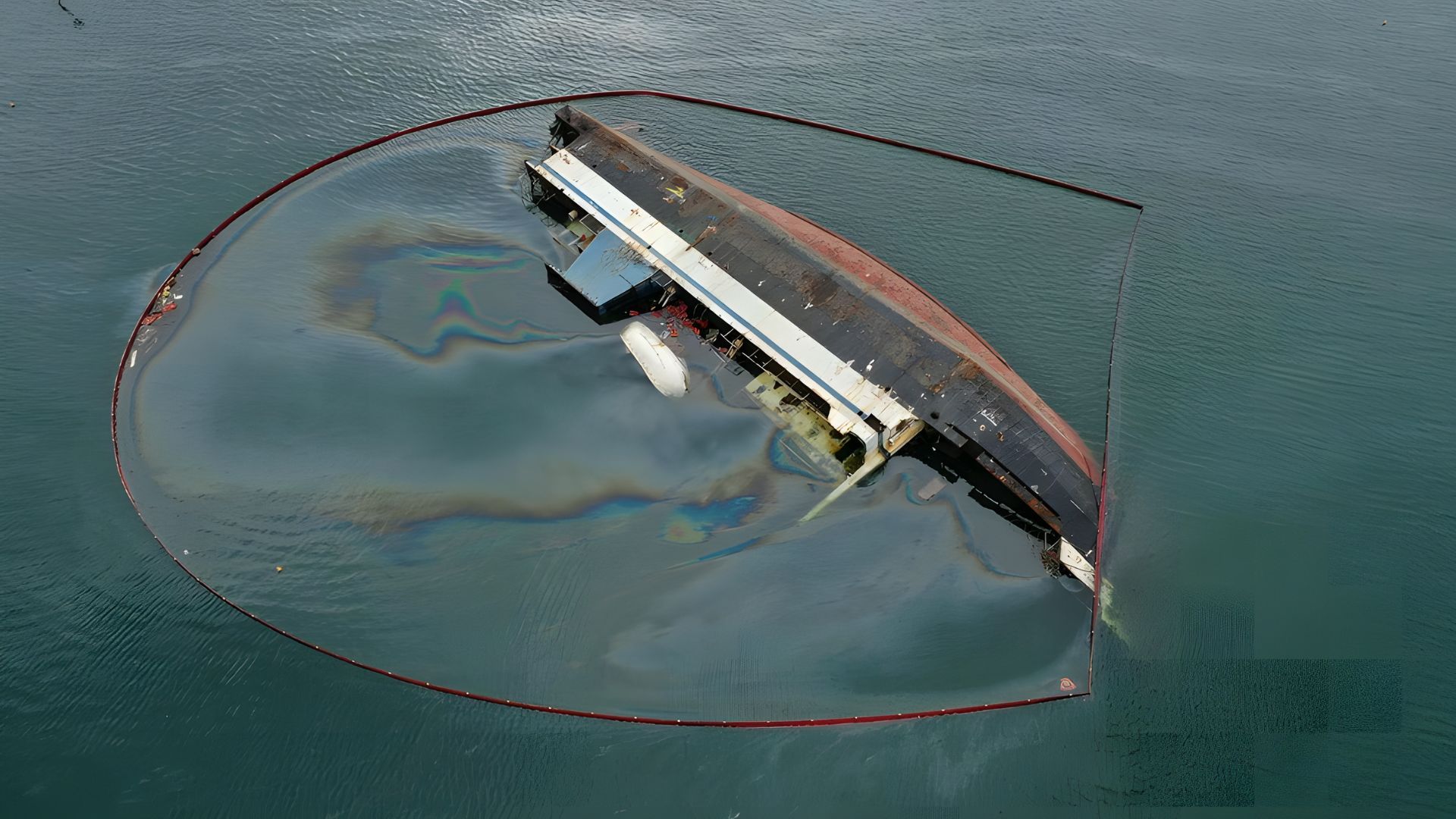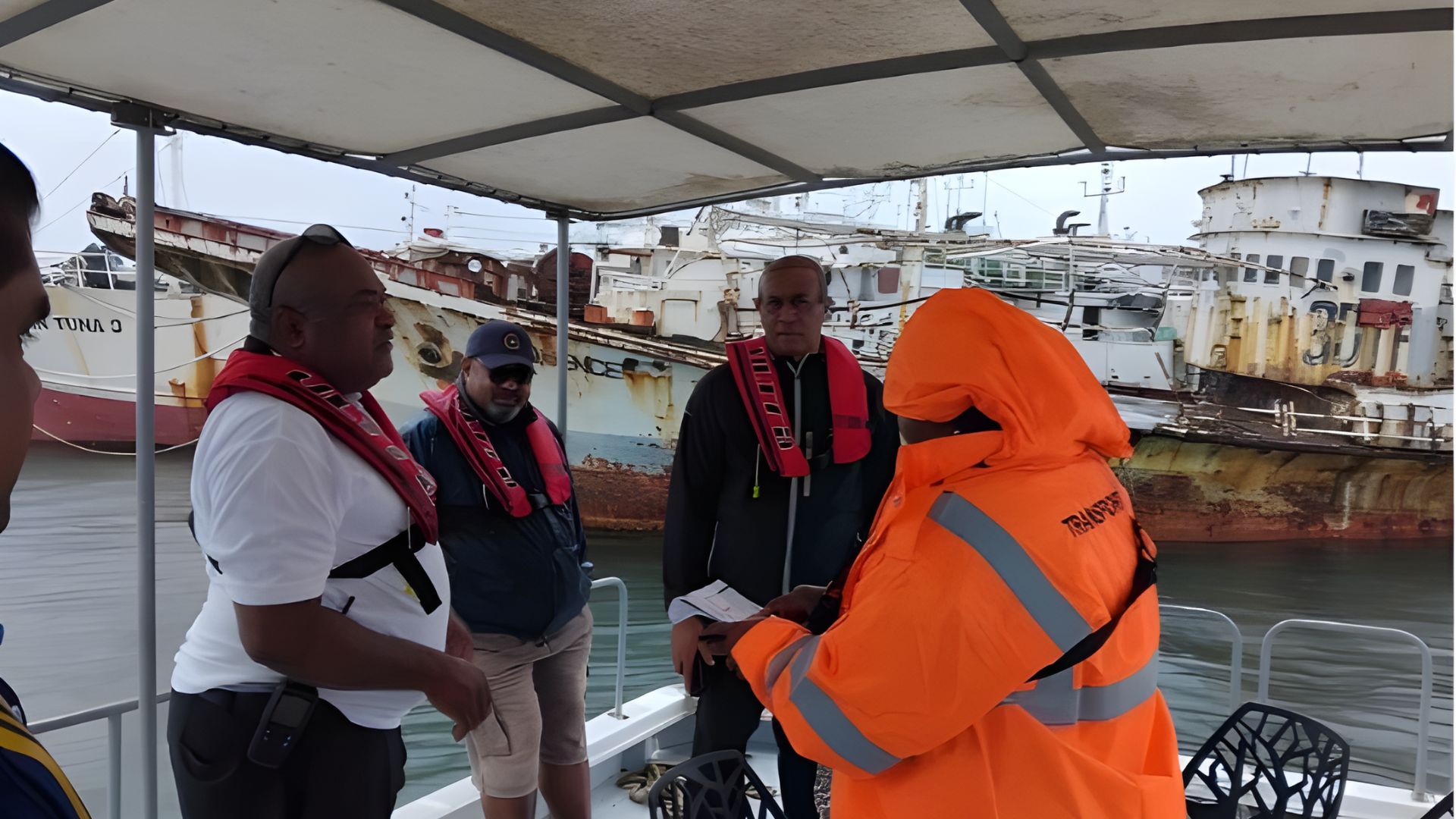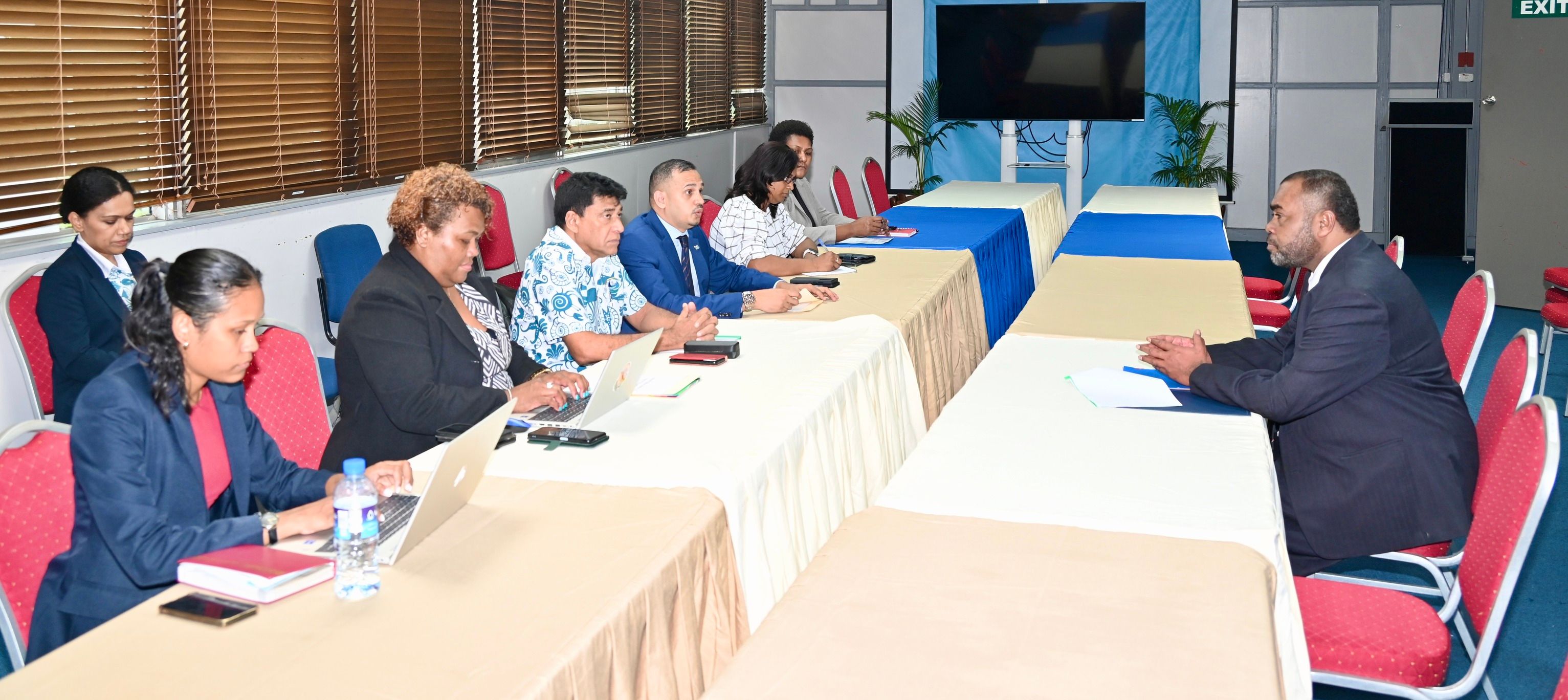

Some of the derelict vessels within the Suva Habour, Fiji.
Photo/Supplied
Fiji tightens maritime protection measures
The move follows a recent shipping incident in the Suva Harbour.


Budget relief buys time for Ōtara-Papatoetoe, but pressures remain


Moana Pasifika end Lautoka curse to win 'Battle of the Pacific'

NZ's Pacific Rainbow+ people are avoiding healthcare after facing discrimination - study

Budget relief buys time for Ōtara-Papatoetoe, but pressures remain


Moana Pasifika end Lautoka curse to win 'Battle of the Pacific'
The Fiji government has warned all vessel owners and boat operators that failure to comply with lawful directives regarding maritime safety and environmental protection will result in legal consequences.
The warning follows an incident in early June in which a privately-owned million-dollar vessel submerged in Suva Harbour, resulting in an oil spill now under formal investigation. The Ministry of Environment is conducting a comprehensive chemical analysis of the affected area to assess the environmental impact.
A government spokesperson says the incident highlights the vital responsibility that vessel owners and operators have towards the people, marine life, and ports of Fiji.
The Lomaiviti Princess II is an inter-island ship owned by Goundar Shipping Limited, which acquired it in 2013 from Tahitian owners, according to the Daily Cargo News.
The ship was being towed by a tugboat when it capsized and partially sank after being non-operational and deteriorating at Muaiwalu II Wharf since 2019.
According to the Maritime Safety Authority of Fiji (MSAF), the Lomaiviti Princess II is among 35 derelict vessels abandoned within Suva Harbour alone.
Traditional fishing ground owners, especially the Yavusa Navukavu, have been requesting that the government and relevant agencies remove derelict vessels for years, as their presence has had an adverse impact on their livelihoods.
Seveci Naisilisili, Chairman of the Yavusa Navukavu Development Trust, told PMN News that this is not the first time a derelict has submerged in the harbour.
“And every time this occurs, our concern is and has always been the impact on the marine environment as it is our main source of livelihood,” Naisilisili says.

Most of the derelicts are fishing vessels, abandoned by their owners in the Suva Habour. Photo/Supplied
He highlighted the delayed efforts to remove the vessel and the ongoing threat posed by the oil spill, saying, “Although we cannot currently assess the full extent of the spill’s impact, it is still of serious concern to us”.
Naisilisili says that despite previous communications and meetings with the Fijian government over the urgent removal of the derelict vessels, there has been a lack of urgency.
“The impact on our livelihood is much more serious than this because the fish stocks are affected, the reefs are affected,” he says. “There’s only been talk, but nothing has happened.
“Our plea is there and it’s just being swept around in the wind, blown from one direction to the next. We are still waiting to see any action.”
The Yavusa Navakavu Development Trust represents the interests of seven Indigenous landowning clans (Mataqali) from five villages that rely on these fishing grounds.
Joeli Cawaki, CEO of MSAF and head of the joint committee responsible for removing dilapidated boats from Fiji’s waters, says efforts are underway to eliminate all derelicts from the Suva Harbour.

The Lomaiaviti Princess II, submerged in the Suva Habour since 2 June. Photo/Ministry of Environment, Fiji
“We started off last year with 45 and now it's 35 vessels,” he told PMN News. “These are the ones that have been abandoned, have been left, and the owners have said they can't remove or even take care of the vessel, they are beyond service or fit for the purpose.”
The Joint Maritime and Environmental Committee consists of representatives from the Ministry of Public Works, MSAF, Fiji Ports Corporation Limited (FPCL), the Water Police, the Ministry of Environment, Climate Change, and Disaster Risk Management (MECC), and the Ministry of Fisheries.
Cawaki says most of these derelicts are fishing vessels abandoned during the height of the Covid-19 pandemic due to the turnaround in business.
“Most of the owners and operators say that business is not good and they just leave the vessel and go,” he says. “Over the years, there have been court cases, and FPCL has had to detain vessels in Suva Harbour.
“These vessels were detained because of a lack of security and management. Some of them are just taking water, and they are sinking.”
FPCL has identified 71 derelict and wrecked vessels within port boundaries throughout Fiji that need to be removed.

Fiji's Minister for Transport Ro Filipe Tuisawau, second from right, visits the Suva Harbour to inspect the derelict vessels. Photo/Fijian government
Cawaki says removal efforts have been delayed due to a lack of funding, as the government had not allocated a specific budget to the initiative.
But in May of this year, the committee secured funding from the Waitt Foundation in the United States, a grant-making organisation dedicated to ocean research, policy, marine protection, and Blue Prosperity initiatives worldwide.
“If everything goes well, hopefully we will be starting at the end of this month or next month,” Cawaki says.
“Once we receive the money, then we will put out an expression of interest for our local companies for the cleaning and the clearing of the vessel, and also the towing.
Cawaki outlined three options for vessel removal: the first is to scuttle vessels in poor condition in waters deeper than 1000 metres, the second is to scrap them, allowing interested parties to sell the metals as raw materials, and the third involves sinking vessels in designated areas to mitigate environmental hazards.
Several resort owners have expressed interest, and Cawaki says that vessel owners are involved in the whole process.
“They were called in and we said, Suva is congested with your vessels. You are loitering, and we need to remove all these vessels,” he says. “I give them 31 days, and if they don't respond, another letter to them and if they still do not respond, then it's time for removal.
“So, these 35 vessels that we are talking about, all the processes through the law have been expedited. All the claims have been addressed. So, what is left now is the removal.”
Minister for Environment and Climate Change, Mosese Bulitavu, says Fiji’s ports and waters will not be allowed to become dumping grounds.
"There are no exemptions when it comes to environmental protection. The Lomaiviti Princess II incident is a stark reminder that all vessel owners and operators have a non-negotiable duty of care to the people, marine life, and ports of Fiji.
“Breaches of this duty, whether by omission, neglect, or refusal to comply with lawful directions, will result in legal actions,” Bulitavu says.

Fiji's Minister for Environment Mosese Bulitavu, right, at a briefing with his committee. Photo/Fijian government
Meanwhile, Goundar Shipping Limited's Managing Director, George Goundar, says the incident involving the Lomaiviti Princess II at Suva Harbour is not the company's fault.
He told the state broadcaster, the Fijian Broadcasting Corporation, that the company has no involvement and directed all inquiries to the ministry and Fiji Ports Corporation.
Goundar insists their "hands are clean" and encourages people to gather information at the wharf.
Transport Minister Ro Filipe Tuisawau has stated that the matter is under investigation.